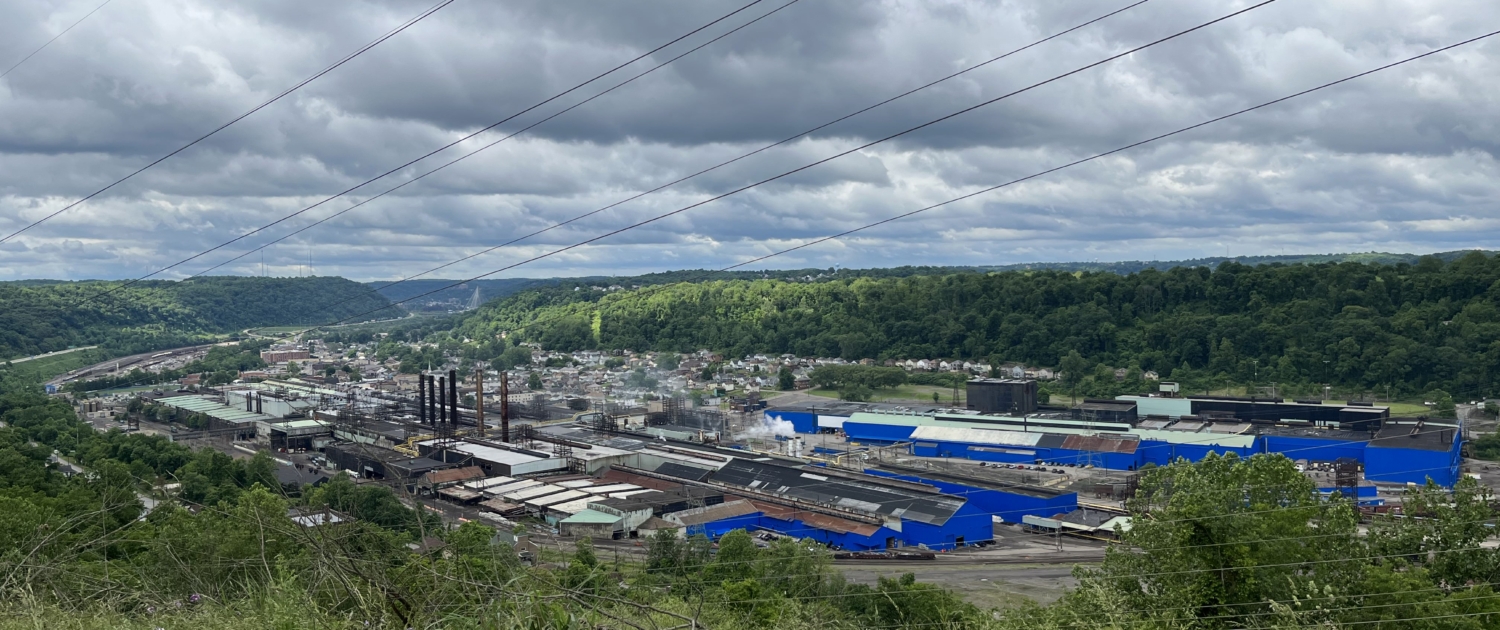By Greg Wilson
On February 15th, 2024, Cleveland-Cliffs announced its plan to indefinitely idle the tinplate mill in Weirton, West Virginia. The mill had been in continuous operation since the early 20th century. The decision threatens the jobs of some 900 steelworkers in a town of about 19,000. For its explanation, the company cited a decision by the U.S. International Trade Commission to deny a petition by the company and the United Steelworkers for trade duties on imported tin products. A newspaper story in the West Virginia Metro News quoted the mill’s union president, Mark Glyptis as saying the decision was “absolutely ridiculous. The ITC betrayed America.” Steven High and I just published an article on the efforts by steelworkers to keep their mills open through worker ownership: “Worker Ownership in North America: The Cases of Weirton Steel (West Virginia) and Algoma Steel (Ontario),” online in Labor History, February, 2024 (DOI: 10.1080/0023656X.2024.2319286). We ended our piece noting that the mills in both of our case studies remained open. Sadly, that is no longer true. This news will be a body blow to the Weirton community and the steelworkers, who had fought for two generations to keep the mill open.
As we note in our article, in the last quarter of the 20th century, worker ownership emerged as a popular option for North American workers to prevent the closure of their mills. In Weirton, workers succeeded in 1984 gaining ownership of the mill after then-owner National Steel threatened to shut down the facility. At the time, the mill employed around 11,000 workers. Signs of trouble for the mill were there, as National stopped investing in Weirton, and the mill faced increased competition from foreign companies, along with a decline in the use of tinplate in the food and beverage industry. Starting in 1984, the mill operated under an Employee Stock Ownership Plan, or ESOP, the brainchild of investment banker Louis Kelso, who had been promoting the idea since the 1950s. The popularity of the option grew in the 1970s after Congress approved generous corporate tax credits for ESOPs, just as companies like National Steel and its workers like those in Weirton faced difficult circumstances.
Workers at Weirton faced little choice in trying to save their jobs. The decision to support the ESOP gave workers time as they moved to modernize the mill, pay down debt, and make the mill competitive in a difficult market. But while workers owned the mill through stock purchases, they did not run the day-to-day operations, or make management decisions. Those fell to the Board, on which the workers held three seats out of nine.
For several years, the mill did well. But mismanagement and continued competitive forces began to take their toll. There was significant corruption among Board members, and cost overruns on approved modernizations. Moreover, one of the powerful Board members was Harvey Sperry, whose law firm also represented foreign steelmakers – a direct conflict of interest. Starting in the 1990s, the company began to lose money. In the face of this, workers lost their majority stake in the company through public stock offerings that sought to raise capital to aid the beleaguered mill. The company’s stock value plummeted and in 2003 Weirton Steel filed for bankruptcy, ending the ESOP period.
In subsequent years, the mill went through different owners, but managed to stay open. The latest owners, Cleveland-Cliffs, bought the company in 2020 after acquiring the U.S. holdings of ArcelorMittal. In 2007, the steelworkers at Weirton voted to abandon their Independent Steelworkers Union and affiliate with the United Steelworkers. At the start of 2024, the mill employed around 900 workers, although about 300 had been laid off since the summer of 2023. In accordance with their plan to idle the Weirton mill, Cleveland-Cliffs is offering severance packages and relocation opportunities to the workers. For our article, I interviewed Glyptis. When I heard the news, I reached out to him. “We’re trying to save it,” Glyptis said in a text message with me.
It is a tragic end for a mill with a long history of steelmaking and the closure will be damaging to the workers and the Weirton community. The ESOP period offered some hope for workers during the crisis of the 1970s and 1980s. But unfortunately, the Weirton story also shows the difficulty of long-term success for workers trying to hold on to their livelihoods through the many vicissitudes of global capitalism.




